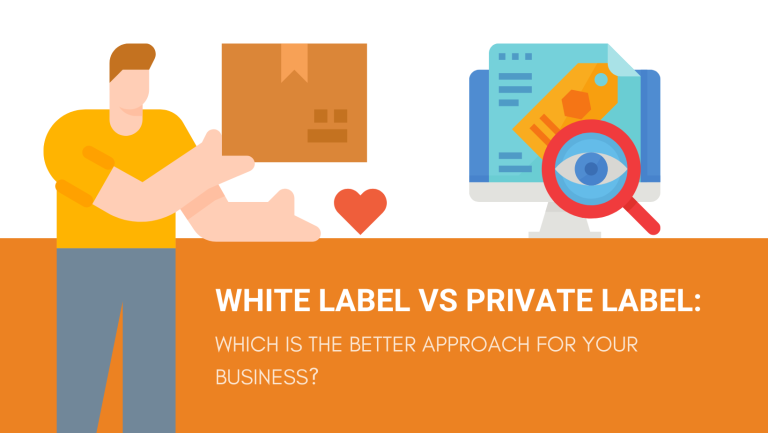Many entrepreneurs often confuse white label and private label branding, as both involve selling products under your own brand name.
However, they are distinctly different approaches that can impact everything from product customization to profit margins.
In this guide, we’ll break down the key differences between the two, explore when one might be a better choice over the other, and help you decide which branding strategy is right for your business.
Whether you’re just getting started or looking to scale, this comparison will provide the clarity you need to make an informed decision.
Let’s dive in!
What Does White Label Mean?
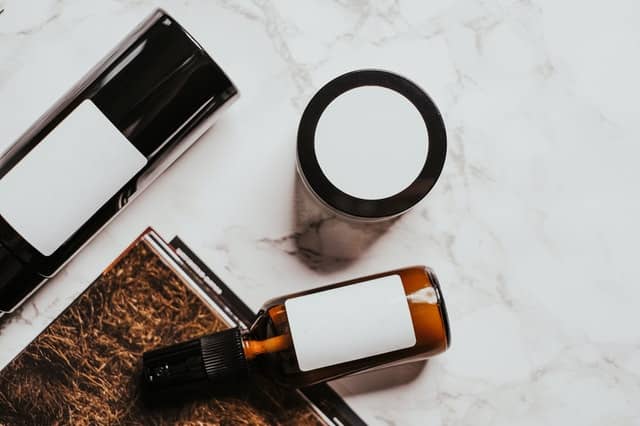
The term ‘white label’ originates from a practice where manufacturers would deliver white label products with a blank label. This practice allows the reseller to add their own brand name and logo before selling.
For context, let us take a step back and discuss how white labeling works.
How Does It Work?
Take, for instance, that you run a dropshipping beauty store and would like to start selling your own line of branded cosmetics.
If you are not well-versed in formulating such products, the next best solution would be to partner with a leading third-party cosmetics manufacturer.
The white labeling process would then unfold as follows:
- Find a third-party product manufacturer within your niche
- Describe the types of beauty products you would like to sell
- The manufacturer then presents to you the different product formulas that they offer
- You select the product formulations that would work for your brand and contract the manufacturer to produce them for you
- The manufacturer produces the goods and adds your brand labels or delivers them to you without labels and you handle the branding of the products
Who Is It Suitable For?
A white label manufacturer handles all aspects of product design or formulation. Consequently, white labeling is ideal if you:
- Are a beginner in the industry and have not quite grasped the ins and outs of product development
- If you would rather avoid getting involved In the complexities of manufacturing
- If you would like to get your product to market in a shorter time without the delays of product research and development
What Does Private Label Mean?
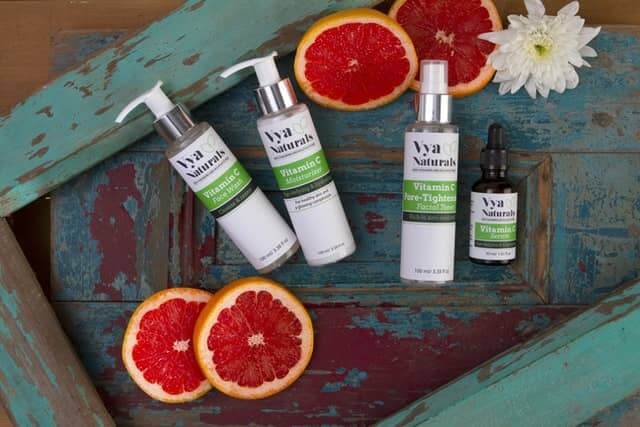
Private labeling is a more hands-on approach to product branding. Unlike white labeling, in private labeling, you work alongside your chosen manufacturer to come up with a product design or formula that is unique to your brand.
How Does It Work?
Take, for example, that you would like to dropship or stock private label hair care products. The process would entail the following steps.
- Find a third-party hair care products manufacturer
- Explain the type of hair products you would like to develop for your brand
- Present your product design/formulation ideas
- Work with the manufacturer to perfect the product concept
- The manufacturer produces then the products complete with your brand labels
Who Is It Suitable For?
Due to the hands-on creative approach, private labeling would be ideal for you if:
- You have a technical or creative understanding of the products you would like to brand
- You would like to make your products stand out in the market by offering a special design/formula
White Label vs Private Label – Pros and Cons
Pros of White Labeling
- Quick to Launch: Products are ready-made, letting you focus on selling rather than development.
- Low Upfront Costs: No need for product development or customization reduces initial investment.
- Broad Availability: Easier to find suppliers offering white-label products in various industries.
- Scalable: Perfect for businesses aiming to expand quickly with minimal setup.
- Lower Risk: Since the product is already tested in the market, there’s less uncertainty.
Cons of White Labeling
- Limited Branding Control: Your ability to personalize the product and differentiate your brand is minimal.
- High Competition: Many businesses can sell the same product, making it harder to stand out.
- Quality Dependence: You rely entirely on the supplier’s quality standards.
Pros of Private Labeling
- Exclusive Branding: You control the design, packaging, and overall product identity, building a unique brand.
- Higher Margins: Customization and exclusivity allow you to charge a premium.
- Niche Targeting: Create products tailored to specific customer needs, strengthening customer loyalty.
- Full Ownership: You dictate production standards, giving you control over quality.
Cons of Private Labeling
- Higher Upfront Costs:Product development and customization require more investment.
- Longer Time to Market: Customization and production take time compared to white-label products.
- Supplier Dependence: A delay or issue with your supplier directly impacts your operations.
- Greater Risk: If your product doesn’t perform well, your investment is harder to recoup.
What Is the Difference Between White Label and Private Label?
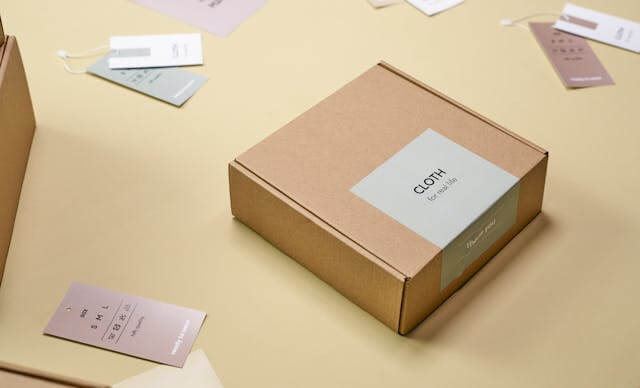
Many people mix white label with private label and vice versa. And sometimes, their simple definitions aren’t enough.
And we understand that it can be confusing because both models let you sell products with custom packaging.
However, they differ in terms of control, customization, and branding. Here’s a breakdown of the key differences.
Here’s what we mean by that:
Key Differences Between While Label and Private Label
- Customization: Private label products are highly customizable, while white label products are pre-made and generally not customizable.
- Exclusivity: Private label products are typically exclusive to your brand, while white label products are sold by multiple businesses.
- Control: Private labeling offers more control over the product’s design and features, whereas white labeling has more limited input.
These differences also influence other factors such as pricing, marketing strategy and more. We’ll discuss all this and more in the next section.
A Comparison of Features: White Label vs Private Label
Choosing between white label and private label products comes with its own set of challenges and benefits. I
It’s important to carefully weigh these factors before making a decision. In this section, we’ll explore key aspects that will help you make an informed choice based on your business needs.
Product Customization

The key difference between white label and private label lies in how much you can tailor the product.
White label products are pre-designed and standardized, giving you little to no room for customization beyond adding your logo or brand name. It’s a quick and cost-effective option for launching a product without reinventing the wheel.
In contrast, private label products allow full customization. You can adjust features like design, materials, packaging, or even functionality to align with your brand’s vision and your customers’ needs.
This makes private labeling ideal for creating a product that feels unique and exclusive to your brand.
Expert Insight
For brands focused on building a distinct identity, private labeling is worth the investment. But if speed and simplicity are your priorities, white labeling offers an efficient way to enter the market.
Branding Control

When it comes to branding, white label products offer minimal control. You’re essentially adding your logo to a ready-made product, which means the product’s core identity remains generic. While this approach saves time and effort, it limits how much your brand can stand out in a competitive market.
On the other hand, private label products give you full control over branding. You can dictate everything from product appearance to packaging design and messaging.
This level of control ensures your product reflects your brand’s unique personality and values, helping you build stronger recognition and customer loyalty.
Expert Insight
If creating a memorable brand presence is central to your strategy, private labeling is the way to go. However, for businesses entering the market quickly or testing a new product line, white labeling can still offer a cost-effective branding solution.
Product Quality
When it comes to product quality, white label products stick to a consistent standard. The manufacturer produces the same item for multiple buyers, which can work well if you’re looking for reliable, ready-made options. However, this also means you can’t tweak the quality to better suit your audience.
Private label products, on the other hand, let you have a say in quality. You can adjust materials, design, or features to align with your brand and cater to your customers’ preferences. This flexibility is especially helpful if your audience values unique or premium offerings.
Expert Insight
If your customers care about standout quality and tailored features, private labeling can give your brand an edge. But if affordability and consistency are your main focus, white labeling might be the smarter choice.
Pricing
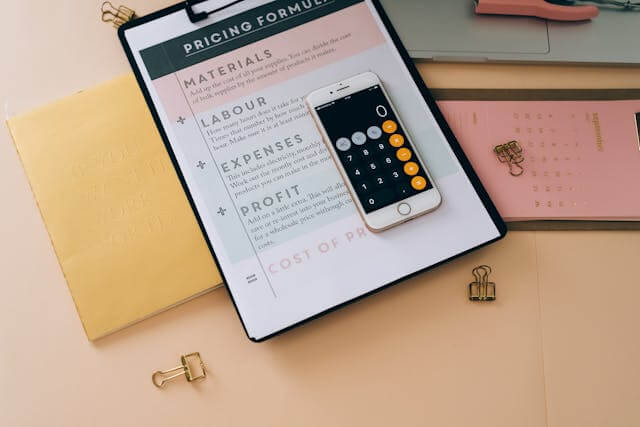
White label products often come with lower upfront costs since the manufacturer produces them in bulk and sells to multiple buyers.
This makes them an attractive option if you’re starting out or aiming to keep your expenses manageable.
However, the standardized nature of white label goods may limit how much you can mark up the price, which could squeeze your profit margins.
Private label products, while more expensive to develop and produce, offer greater flexibility in pricing.
Because the product is tailored to your brand, you can set premium prices that reflect its exclusivity and unique features.
This approach can lead to higher profit margins, provided your audience values customization and branding.
Expert Insight
Choose white labeling if you need a cost-effective way to launch products quickly. For businesses focused on building a high-value brand with premium pricing, private labeling is the way to go. Always weigh production costs against your target profit margins to find the right fit.
Marketing Strategy

White label products come with pre-designed features, so your marketing options may be somewhat limited.
Since multiple brands might sell the same product, you’ll need to focus on differentiating through creative branding, competitive pricing, or enhanced customer service.
White labeling is ideal for businesses that rely on speed to market and simplicity in promotion.
Private label products, on the other hand, provide a blank slate for your marketing efforts. Because the product is unique to your brand, you have full control over how you position it in the market.
This allows for more personalized campaigns, storytelling, and branding strategies and generally, more effective marketing.
With private labeling, you can highlight specific features, solve niche problems, to resonate deeply with your target audience.
Expert Insight
If your goal is to get products to market quickly and test demand for dropshipping, white labeling works well. But if you’re building a brand with a strong identity and targeted marketing campaigns, private labeling gives you the creative freedom to stand out.
Production Lead Time
When it comes to production timelines, white label products often have the upper hand. These items are pre-manufactured and ready for branding, which significantly shortens the lead time.
For businesses aiming to launch quickly or replenish inventory without delay, white labeling is a practical choice.
On the flip side, private label products require more time. Since they involve customization in design, formulation, or packaging, the production process is longer.
You’ll need to account for design approvals, prototype testing, and quality checks before reaching the final product. While the timeline is extended, the payoff is a unique product tailored to your brand’s vision.
Expert Insight
If you’re in a competitive market with fluctuating demand, the quick turnaround of white labeling can keep you ahead. However, private labeling is worth the wait when exclusivity and brand alignment are top priorities.
Risk and Control
White label products come with less risk but also limited control. Since the product is already designed and tested, you won’t face significant challenges with production or functionality.
However, you also have minimal influence over the product’s features, quality, or potential updates.
Private label products, on the other hand, give you complete control—from design to packaging—but this comes with added risks.
Any misstep in production, material sourcing, or design could result in delays or increased costs. Managing these risks requires clear communication with manufacturers and a robust quality assurance process.
Expert Insight
White labeling is ideal for businesses starting small or those unwilling to gamble with high investments. For brands ready to take calculated risks for a bigger reward—like stronger market positioning and unique offerings—private labeling offers more potential for growth.
Target Market

When it comes to your target market, white label and private label strategies cater to different business goals. White label products are great for businesses looking to serve a broad, price-conscious audience.
Since the products are ready-made and generic, they appeal to customers seeking affordability and reliability without focusing much on brand identity.
Private label products, however, are better suited for businesses targeting a niche audience. With customization and unique branding, you can create a product that directly addresses specific customer needs or preferences.
This approach resonates with consumers willing to pay a premium for exclusivity and tailored solutions.
Expert Insight
Consider the expectations of your audience before deciding. If your customers value uniqueness and are willing to pay extra for tailored features, private labeling can set your brand apart. For mass appeal and faster scalability, white labeling might be the better fit.
How to Choose Between White Label and Private Label?
Deciding between white label and private label products boils down to a few key considerations that align with your business goals and resources. Here are some practical steps to guide your decision:
Assess Your Brand Vision

If you’re looking to quickly launch a product with minimal effort in terms of customization, white label might be your best bet. It allows you to focus on marketing and sales without having to worry too much about product development.
On the other hand, if building a unique brand identity with full control over your product is a priority, a private label gives you more flexibility to create something distinct.
Consider Your Budget and Resources
White label products generally come with a lower upfront cost since they don’t require product development. You’re essentially buying an already established product and branding it as your own.
Private label involves higher initial investment, as you’ll likely need to cover design, packaging, and possibly manufacturing. But, it also offers a higher potential for profit due to its unique positioning.
Evaluate Your Long-Term Goals
White label products are great for businesses aiming for rapid scalability with less risk, particularly in markets where time is of the essence.
Private labels suit businesses that want to create a lasting brand with products that stand out in the market and foster customer loyalty.
Market Demand and Niche

If your market is highly competitive and you’re targeting broad consumer needs, white label products can help you quickly get a foot in the door with familiar products.
However, if you’re operating in a niche market where customers value exclusivity and uniqueness, private label is a stronger choice for differentiation.
Expert Tip:
When in doubt, start with white label to test the market. Once you’ve gained customer insights and brand recognition, transitioning to private label can help you elevate your business and command higher margins.
FAQs about White Label and Private Label Products
Are White Labeling and Private Labeling Legal?
Yes, they are.
In both private and white labeling, you enter an agreement with a manufacturer and pay them for the service of producing your goods. You also disclose to them upfront that you will be reselling the products you are contracting them to make.
If you follow these procedures, selling white label and private label products is fully legal. However, you may run into problems with the law if you:
- Buy another brand’s products and sell them by trying to pass them off as your own
- Use another brand’s product designs or formulations especially if they are patented
Can I Dropship Private Label or White Label Products?
Yes, you can.
You will, nevertheless, need to find a manufacturer that offers dropshipping services.
Alternatively, you could partner with a dropshipping company like NicheDropshipping. We would:
- Find top private label or white label manufacturers in China for you
- Coordinate the product development process between you and the manufacturer
- Request product samples and send them to you
- Initiate the production process upon your approval
- Negotiate fair rates on your behalf
- Collect the finished products
- Perform quality inspections
- Provide warehousing services
Upon receiving your dropshipping orders. Our team would further:
- Label your products with your brand labels (for unmarked white label products)
- Package and dropship each order to its respective customer
What Qualities Should I Look For in a Private Label or White Label Manufacturer?
The first step would be to find out if your preferred manufacturer offers the service you need. This is because some manufacturers only offer private labeling while others offer white labeling services or both.
Further, it would be essential to aim for:
- Affordability- the cost of manufacturing should be fair enough to keep your product prices affordable and within a level that earns you a fair product margin.
- Quality Production- whether you are commissioning white label or private label products, their quality will depend on how well your manufacturer executes their design/formula. Prioritize top-notch quality standards.
- Reliability- can your manufacturer meet supply deadlines? Can they arrange for punctual delivery? Seek other options if they are not able to. It will be better than having an erratic supply chain.
- Inclusive Service Delivery- services such as in-house labeling or decorative branding are convenient because you receive ready-to-sell products. A one-stop manufacturer also guarantees you a better chance of quality standardization.
- Discretion- the design/formula of your private label product should not be offered to competitors. A good manufacturer should, therefore, be discreet and even willing to sign an NDA or an NNN if they are based in China.
What Is the Difference Between Private Label and Brand?
A brand is a unique identifier such as a name or trademark that is owned by a company or business. It is used to distinguish the products that are made by that company or business.
Private label, on the other hand, is a method through which you develop and outsource the manufacturing of products that are exclusive to your company or business.
Is Private Label the Same as Branded Products?
No, private label products and branded products are not the same. While both can carry a brand name, the key difference lies in their origin and customization:
Private label products are typically made by a manufacturer but sold under your brand name. You control the branding, packaging, and sometimes the product specifications. These products are unique to your business.
Branded products, on the other hand, refer to items that are marketed and sold under an established brand name, such as Nike or Apple.
These products are typically made by the brand itself or licensed to other manufacturers, but the brand name is strongly associated with the product.
Is Nike a Private Label Brand?
No, Nike is not a private label brand. Nike is a global brand that designs, manufactures, and sells its own products under the Nike name.
While Nike does work with manufacturers, its products are not sold under different brand names, which is the hallmark of private label products. Nike controls both the design and branding of its products, making it a strong example of a branded product company.
Final Thoughts
Choosing between white label and private label branding can feel like a big decision, but it all comes down to what fits your business needs.
Whether you’re looking for less involvement or more control over your product, both options offer great opportunities. The key is understanding the pros and cons to find the best fit for your goals.
If you’re ready to dive into branding your products but aren’t sure where to start, NicheDropshipping is here to support you.
We’ll guide you through sourcing, private labeling, and everything in between to help you build a brand you’re proud of.
Reach out today and let us help make your eCommerce journey smoother and more successful!
